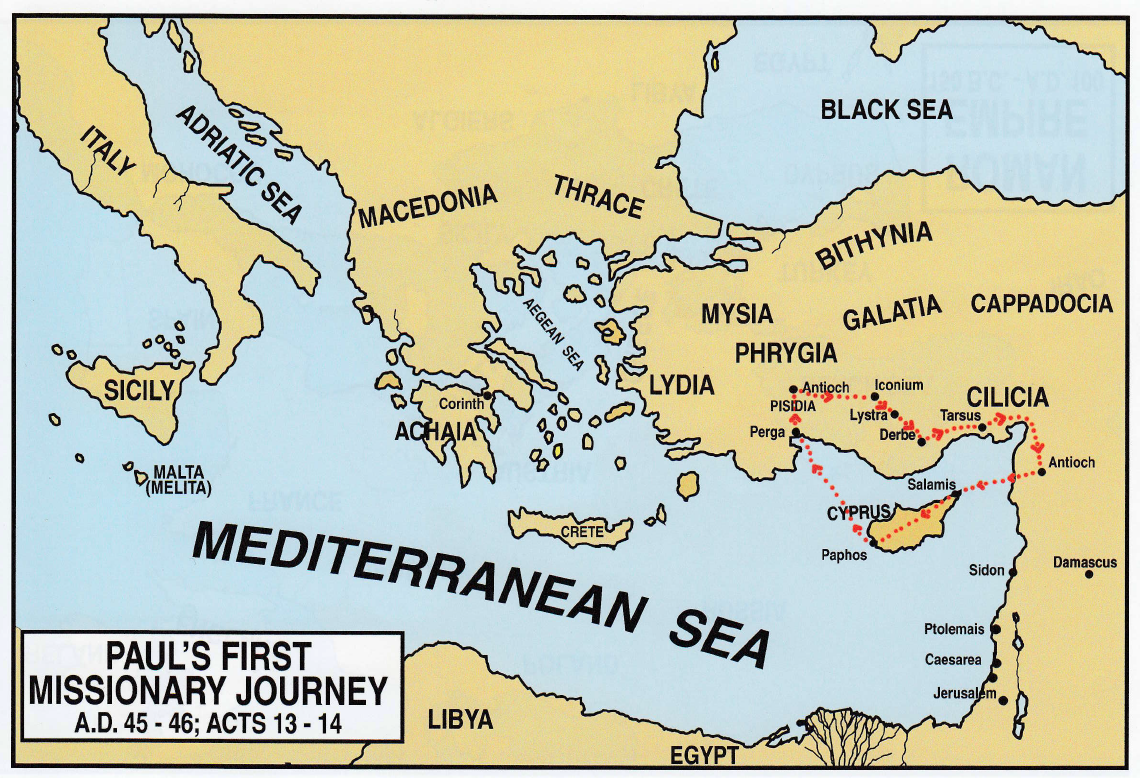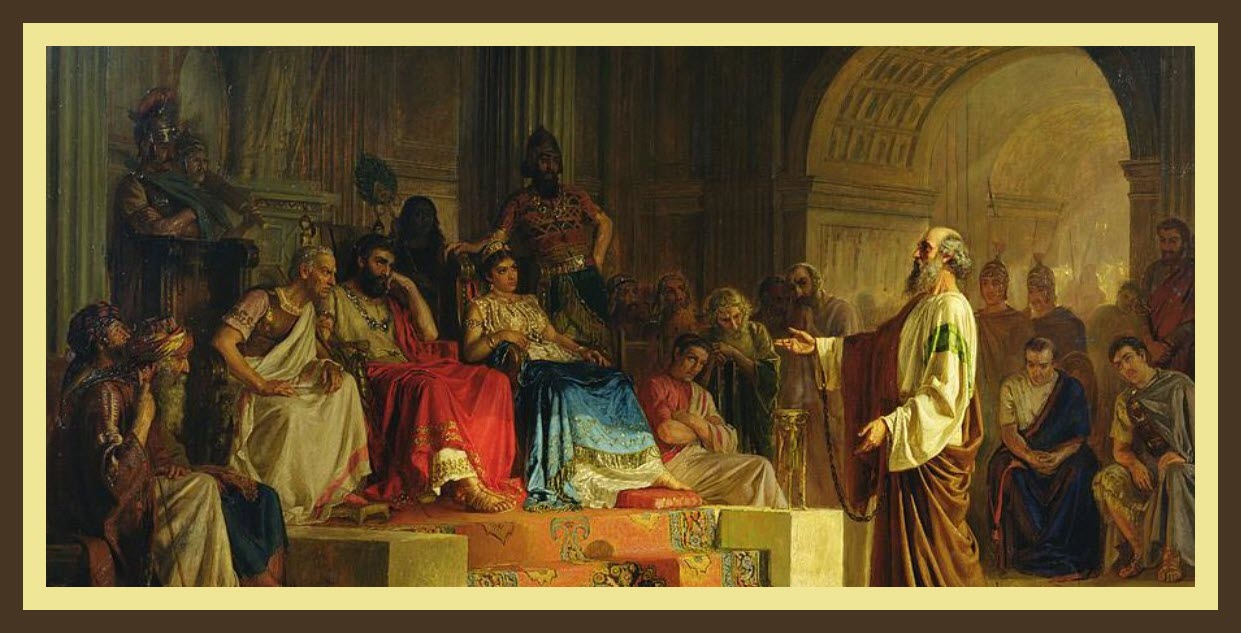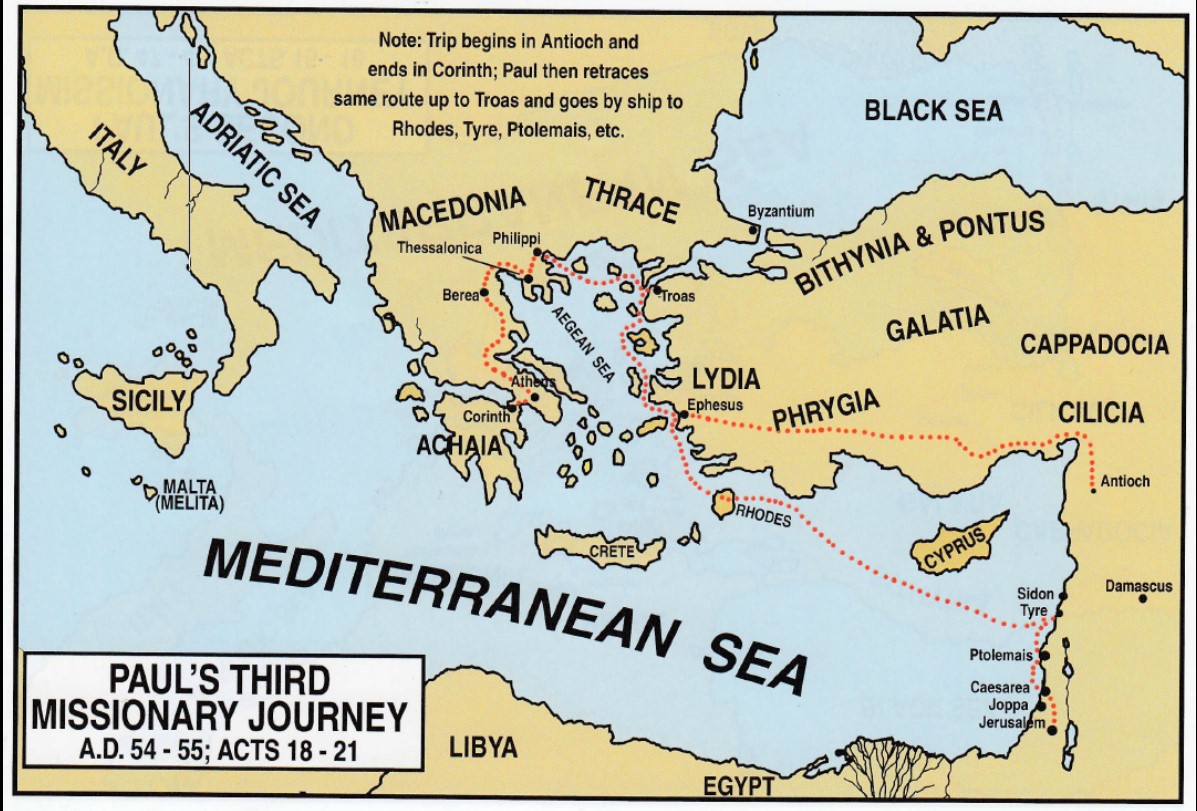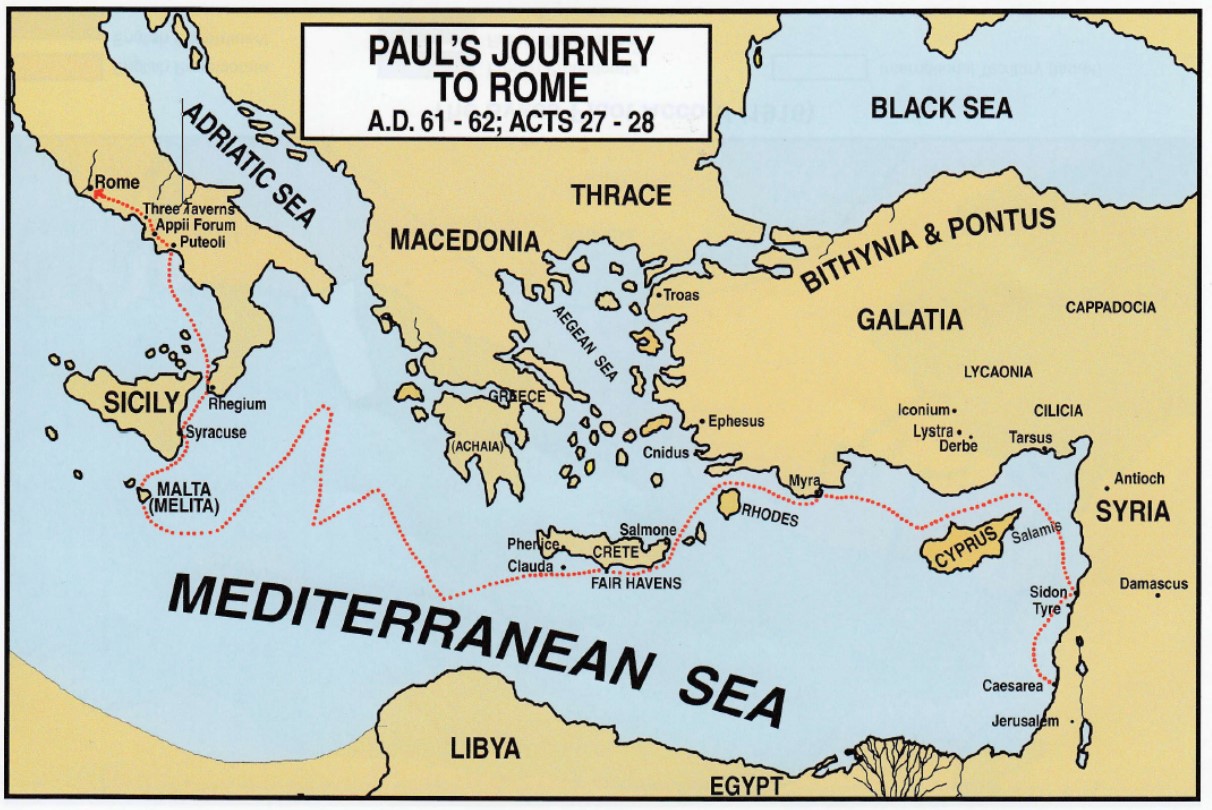

“THE BOOK
OF ROMANS” Part 1 of 8
STB 22-
“One day
you will
stand before God and you must have HIS righteousness”
“Blessed
is the man unto
whom God IMPUTETH RIGHTEOUSNESS WITHOUT WORKS” (Rom 4:6)
“Blessed
is the man
to whom the Lord will not impute sin” (Romans 4:8)
The
word “God” appears 144 times and “of God” occurs more than 25 times.
CHRYSOSTOM
(347 – 407) (He was called ‘The Golden Mouth’) would have Romans read
to him
twice a week. So wonderful and powerful was the book.
Luther
goes
on to say “In
this epistle, you will find the greatest abundance of things that a
Christian
ought to know: What the law is, the gospel, sin, punishment, grace,
faith, imputed
righteousness, Christ, God, good works, love, hope. Cross-bearing
conduct of ourselves
toward the godly and toward sinners.
Conduct
of ourselves toward those of weak faith, friends, toward enemies and
toward
ourselves.
Moreover,
all this
teaching is taken from the scriptures and illustrated by Paul’s
personal
example and by the example of the prophets, so that there is nothing
left for
us to desire.
It seems
therefore,
that Paul’s object in this epistle, was to draw up a syllabus of the
entire
Christian and evangelical doctrine, and to prepare an introduction to
the
entire Old Testament. For any person who has received this epistle into
his
heart has without question, the light and strength of the Old Testament
in
himself.
Accordingly,
let
every Christian become familiar with this epistle, and put it into
constant
practice. To this end, may God grant us his grace! Amen!”
Paul writes to
the church at Rome in 57AD.
He was on
the last
leg of his third missionary journey
around the area of the Mediterranean Sea (Acts 18:23 – Acts 21:19) and was
headed
for ‘home’ to Jerusalem to tell the saints what he had done (Acts
21:18-19)
He was at Corinth (Acts 20:3) at the time, and
was to leave for Jerusalem with money for the poor saints there (Acts
15:26).
Before he
leaves, he
writes this letter in about the space of three
months (Acts 20:3) and sends it to the Christians in Rome by a lady called Phebe who lived in a
suburb of Corinth called Cenchrea (Rom 16:1). She was travelling to
Rome from
Corinth at the time. She was a Christian woman and obviously highly
thought of
by Paul.
You see,
Paul just
couldn’t run down to the shops and pop this letter in the letter box.
Why?
There was no postal service for the public. The Roman government had
its own
official letter and parcel delivery service for government business,
but there
was none for the everyday citizen. Letters and indeed money, had to be
sent via
friends and relatives.
WHO
STARTED THE
CHURCH AT ROME?
In 33AD at Pentecost in Jerusalem (Acts
2:1), about 24 years earlier from when Paul writes
this letter in 57AD, there
were strangers of Rome (obviously so
called as Paul hadn’t met a lot of them them) (Acts 2:10). These went
back to
Rome and started the Christian church there.
Now over
the years,
many Christians from all over the East, had gone to live there as well
and
swelled the church numbers. Indeed, some of these were Paul’s friends,
and his
own converts in the faith (Rom 16).
About three years later (60AD) after Paul writes
this letter, he finally gets taken to Rome (and not the way he had in
mind),
but as a prisoner of Rome (Acts 26:32).
This was
his fourth journey (Acts 27:1-16).
Paul had never been to Rome, but he had heard
such good reports of the church’s
faith (Rom 1:8) which had gone all over the world.
He had
wanted to
visit them. (Acts 19:21; Rom 1:13)
Although
God has told
him he would go to Rome and be God’s witness (Acts 23:11), he was
unsure
whether he would get there or not (Rom 1:10, 13).
After Paul
got to Rome, he was obviously a trusted ‘prisoner’ and so
they let him hire his own house for two
years, where he received and taught all who came to him for about
two years
(Acts 28:30-31).
You see,
the authorities in Rome hadn’t heard much
about Paul and knew very little about him (Acts 21:28) and indeed, were
interested in what Paul had to say about the Christian sect of which
they had
heard (Acts 21:29). So he had a ‘free range’ but was under guard for
two years
in a hired house.
Now around
62-63AD, they let him go as
a free man.
But in 64AD Nero burns Rome and blames the
Christians who he saw as a big threat. It has been said that one in ten
people
in Rome had become Christians. He therefore made up this excuse to go
after
Paul.
Paul is
captured soon
after and put back into prison. This time there is no hired house for
him.
Paul was beheaded in Rome about three years after
in 67AD.
This
beheading takes
place about ten years after he writes his
letter to the Romans.
|
Year |
Event |
|
33 AD |
Pentecost
at Jerusalem |
|
45-48 AD |
Paul’s 1st
trip |
|
50-53 AD |
Pauls’ 2nd
trip |
|
54-58 AD |
Paul’s 3rd
trip. 57AD
WRITES THE BOOK OF ROMANS FROM CORINTH (Greece) |
|
58-60 AD |
Prisoner
at Caesarea for two years. |
|
60-61 AD |
Paul’s 4th
Trip. Taken to Rome to appeal to Caesar. Three
years after writing Romans |
|
61-63 AD |
Hires his
own house for 2 years – under ‘house arrest’ |
|
63 AD |
Paul
released |
|
64 AD |
Emperor
Nero burns down Rome and blames the Christians. |
|
66-67 AD |
Paul
re-taken as a prisoner |
|
68 AD |
Paul
beheaded – 10 years
after he writes Romans |
THE BOOK OF ROMANS Part 2 of 8

************************************************

*****************************************************

******************************************************

**** ****
Harley Hitchcock
This
website’s front page is:
www.
The book of Romans
All eight parts together in one
PDF format article
STB 22 -